![]()
Sun, Aug 5, 2012 | RubinReports | By Barry Rubin
Ammar Abdulhamid may know more about Syria’s civil war than anyone else in the world. That’s no exaggeration. An pro-democratic oppositionist living abroad, Abdulhamid has functioned on a virtual 24/7 basis as the source of news and analysis about events within Syria, always trying to be honest and accurate in his assessments regardless of his own preferences. Barry Rubin, PJMedia Middle East editor, interviewed Abdulhamid on the latest developments and trends.
BR: It now seems that the tide in Syria’s civil war is turning toward the opposition. Why is that happening?
AA: I wouldn’t say the tide is turning, I’d say that the armed opposition is getting more organized and bold, and its tenacity, growing popularity, coupled with President Bashar al-Assad’s cruelty, are inspiring more defections and despair inside the ranks of the regime.
Also, by continuing to play on sectarian sentiments, Assad continues to find success in ensuring the loyalty of the Alawites, the majority of whom keep seeing an existential threat in having regime change take place. However, by going down the route of ethnic cleansing in the coastal and central parts, Assad and his militias managed to create an existential threat for the Sunnis as well.
Of the two million Syrians who have been forcibly displaced inside Syria by Assad’s crackdown, the overwhelming majority is Sunni. These people are angry, bitter, and radicalized, and their very lot in life at this stage is inspiring anger and hate in the minds and souls of Sunnis with whom they come in contact.
Both sides now view the situation in sectarian and existential terms. So no one can back down.
BR: How do you assess the balance in the opposition between Salafists, the Muslim Brotherhood, professional military officers, and moderate democrats?
AA: By having greater access to funds, hence weapons, the Salafists have managed to carry favor with the armed groups, and they are now a dominant force. But that does not necessarily translate into political support or sympathies. The political councils that are emerging to manage the day-to-day affairs of liberated towns and villages have not endorsed an Islamist agenda, or any of the traditional political groups, be they secular or Islamist. The revolutionary scene remains pretty much an open field as far as political ideology is concerned.
BR: With the Syrian National Council (SNC) being dominated by the Brotherhood, what are the key alternative leadership groups? Are you concerned that the United States and other countries might impose the SNC on the country?
AA: By now, and considering the sacrifices that have been made and continue to be made by the revolutionaries, it is highly unlikely at this stage to expect that a group dominated by traditional opposition groups and expatriates can actually be considered legitimate enough to lead. Indeed, SNC’s credibility has long evaporated due to its inability to deliver, and, by association, the Brotherhood’s own credibility, shaky to begin with, was marred. It’s clear to all by now that SNC is not the answer for leading the challenges of governance during the transitional period.
It’s for this reason that some experts are postulating a role for the recent defector Brigadier General Manaf Tlas. But Manaf is too much of a regime insider to be popularly accepted as a legitimate leader, even for a transitional period. The best he could do is play a supporting role. The main actors have to be derived from the ranks of the revolutionary movement inside Syria. Only when such actors become in charge can the Syrian people be assured that their revolution has succeeded.
It’s good that the United States seems obsessed with ensuring post-Assad stability, but stability at the expense of liberty is a notion that the Syrian people have learned to reject. American and international officials should be mindful of that as they chart their policies.
BR: What is the Kurdish attitude toward the opposition and the regime?
AA: It’s clear, considering recent developments, that Syria’s Kurds have decided to reject both: the regime and the traditional opposition. Both have only offered raw deals all through the years. Their attitude could change though the moment the Arab-dominated traditional opposition groups learn that Kurdish demands for autonomy are legitimate. and that the right thing to do at this stage is agree to the best formula for that within the context of a new decentralized Syria.
BR: What do you see emerging in a post-Assad Syria?
AA: The activist in me wants to see a democratic decentralized entity emerge that is capable of responding to the developmental needs and aspirations of the people, irrespective of their religious, national, or political background, in each province, region, and district. The analyst in me has to grapple with the possibility of inheriting a failed state composed of warring fiefdoms, and of the need to find ways to put the pieces back together again, a process that would take years. It was from the beginning clear to me that the transformation of Syria will prove a much longer process than most of us have expected or wanted. But our dream for a democratic state will guide us through the thin and thick of it all.
BR: How can the opposition deal with an Alawite fortress region in the northwest where the regime would try to hold out?
AA: No one has any plans to “invade” Alawite-majority areas. What is needed right now is to stop the ethnic cleaning and to ensure the safe return of displaced population to their homes. Peacekeepers could and should be introduced to ensure a separation of forces for a certain agreed period. Meanwhile, we should all begin a serious conversation on the future administrative structure of Syria.
BR: Are you pleased or concerned about Saudi, Qatari, and Turkish influence on the situation?
AA: It was clear from the very beginning that all sorts of regional and international players have a stake in the outcome of the revolution in Syria, and that many will try to influence it. What concerns me is that the United States and the European Union are not doing nearly enough to exert their own moderating influence on the process, despite their repeated appeals to the Syrian people from the early days of the revolution. The absence of this influence is as telling and influential as any.
BR: We haven’t heard much about the attitudes and activities of the Druze minority. Can you discuss this point?
AA: The Druze of Syria constitutes 2-3% of the population in the country, and that makes them risk averse. Developments in Lebanon after the assassination of former prime minister Rafiq Hariri and the changing positions of Lebanese Druze leader Walid Jumblatt had already exerted their toll on the Druze community of Syria long before the revolution and gave both Assad and Druze elders enough time to reconsider their relations.
In fact, and over the last few years, and away from public scrutiny, Druze elders and other agents of influence in the Druze community seems to have negotiated a form of communal autonomy for themselves, or at least a local power-sharing arrangement of sorts between local figures and regime-appointed figures. This gives them little reason to join a revolution that could jeopardize that.
BR: Clearly there is the threat of ethnic massacres and we have already seen some examples of this problem. Is there hope of minimizing or avoiding such bloodshed?
AA: An active international involvement drawing on previous lessons from the Balkans, the failures and the few successes, can help us avoid these scenarios. But since prospects for such involvement remain dim, we could only put our faith in the hands of the on-the-ground activists and their ability to produce a miracle and keep ethnic massacres to a minimum.



 RSS
RSS

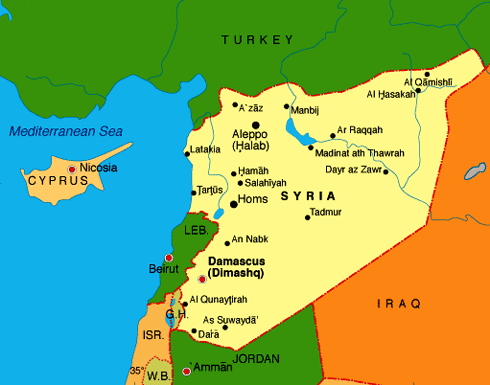
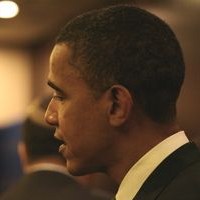
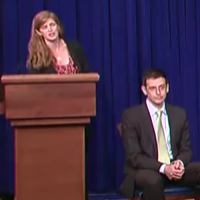
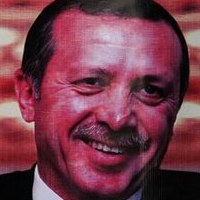
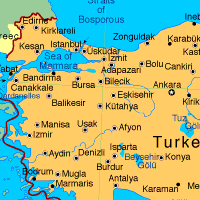
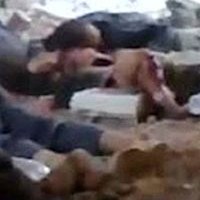




Latest Comments
Hello Mike, Thank you for your positive feedback to the article. I felt there wasn’t too much critical analysis of ...
Thanks for this considered and well constructed article. A follow up article on the manner in which the editorial contro...
THE CLUELESSNESS OF CLAIMING THAT OBAMA'S MIDDLE EAST POLICIES WERE A FAILURE CANNOT BE FURTHER FROM THE TRUTH, WHAT THE...
As long as Obama is the president of the usa do not trust the us government......
Thank you for an good read....